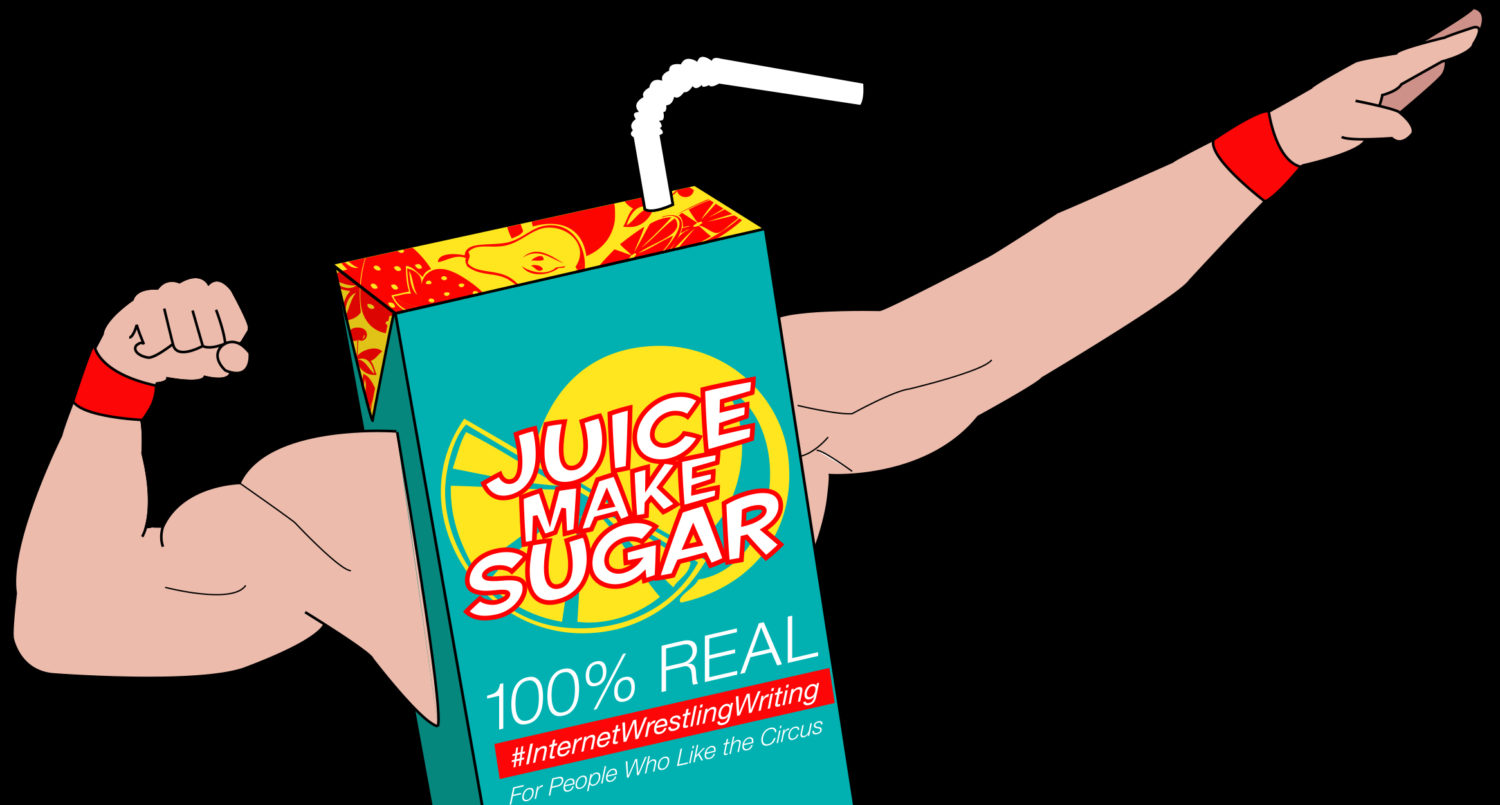This week, it’s (Macho) Man, the myth, the legend: Randy Savage.
“In legend I am a sadistic, slashing, swashbuckling despot who waged war in the guise of sport.”
It’s kind of silly to compare wrestlers to professional athletes, at least when it comes to what they “mean”. Because it’s “scripted”, wrestling’s achievements never get to be the actual accomplishments that say, winning a batting title or an MVP, are. For someone like Ty Cobb, the fact that he’s best hitter this side of Ted Williams makes the fairly violent and kind of racist things he did seem as a byproduct the type of focus, intensity and discipline it takes to hit .400 three times.
But in wrestling and for performers like Randy Savage, undeniably gifted in a way that goes beyond transcendent and veers right into “change the way the game is played” while teetering between “unbearable” and “borderline psychotic” from a personality perspective, are ignored in ways that it’s impossible to with someone like Cobb. Because accomplishments aren’t so much earned as bestowed, the type of person you are isn’t determined by what you do but who you are.
So, while without Savage, there’d be no CM Punk, no Daniel Bryan, no Sami Zayn and maybe not even a Hulk Hogan as we understand him, his existence remains largely whitewashed from the history of the WWE. While Rowdy Piper likes to say that the reason the fans loved Hogan so much is because they hated him even more, this was only really true at the beginning of the WrestleMania era.
It was Savage who stole the show at WrestleMania III, who had his win overshadowed by Hogan’s hotdogging at WrestleMania IV and showed the first cracks in the “Hogan = good” armor in the build up to WrestleMania V. Savage was the one that pushed Hogan to adapt, the one who served as the rabbit for Hogan’s to chase around the track and allowed fans to understand that there was a “better”, or at least more nuanced, approach to this wonderful little thing they were watching. Savage pushed fans, he pushed promoters and even pushed other performers in ways that many of them weren’t comfortable with, but always in a direction and with a destination that was worth the trip.
***
As someone fully aware that professional wrestling is fake — not scripted, but just simply fake — from an “emotions” standpoint, it’s extremely rare for me to get worked up in any real way other than the natural excitement of watching a well worked match. Crying, or even going through the feeling of it getting “a little dusty” is one that’s completely foreign to me a wrestling fan. Except for WrestleMania VII.
WrestleMania VII, for those either too young or too proud to remember, is known for two things: being moved from the 100,000-seat L.A. Memorial Coliseum to the 17,000-seat L.A. Memorial Arena and how much the WWF wanted you to be aware that they were supporting AMERICA in the GREAT WAR (of August 1990 through February 1991). But in it should be remembered for the only time it ever got a little dusty in the Palace of Wisdom during a wrestling show.
Now, of course, even in the same WrestleMania — which featured perhaps Savage’s best performance, in a “retirement match” with Ultimate Warrior — there were things that were more spectacular, but there’s never been a moment more memorable than when Savage turns around and sees his beloved Elizabeth, whose come back to him after years apart after WrestleMania V (with the exploding, and the Mega Powers.) And while it’s easy to look at that moment, with it’s (pardon the pun) pomp and circumstance and see it as just another larger-than-life second in the cartoon world of wrestling, it’s clear that if there aren’t real emotions behind it, then Savage and Elizabeth are remarkably good actors.
They aren’t, of course, and the moment works because of that. Savage seemed to be Savage no matter where he was or what he was doing. Like any famous non-character actor, Savage wasn’t play a part, he was playing himself in different movies. Sometimes it required him to be angry, sometimes funny, sometimes it required him to sell cured meat. But he always seemed to go as hard as he could, and it’s that more than anything that we should try to remember him by. Where exactly along the line, and why, it became the choice of the WWE to treat him first as a pariah, and then as an afterthought is something we may never find out, but with the WWE Network, we don’t worry about losing him forever.
Which is nice.
There’s a bittersweet feeling involved in all this, though, because of all the former performers we’ve lost to “the business” — or more accurately, the things “the business” does to your mind, your body and your “soul” — he’s seems somehow the saddest. He obviously lived a full life, and made it to the top of his profession, but looking back it seems that he didn’t so much have those things bestowed upon as much as he earned them. And to never get a chance to celebrate that, or telling the fans how much they meant to him one last time, to tell them that he should be remembered for what he did and not who he might be seems so unfair.
But at least he’s probably up there in the big ring in the sky, meticulously planning out his next match, snapping into Slim Jims.

